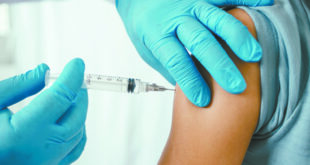 Few skincare products wield as much power and promise as sunscreen. It’s not just about avoiding a nasty sunburn. Sunscreen is your first line of defense against skin cancer, the most common cancer in the United States for both men and women. But navigating the
Few skincare products wield as much power and promise as sunscreen. It’s not just about avoiding a nasty sunburn. Sunscreen is your first line of defense against skin cancer, the most common cancer in the United States for both men and women. But navigating the
sunscreen aisle can be a daunting task.
Decoding the labels: What matters most?
When it comes to sunscreen, knowledge is power.
• Start by deciphering the label. Look for “broad-spectrum protection” to ensure that you’re defended against both ultraviolet A (UVA) rays, which can lead to skin damage that causes wrinkles and sunspots, and ultraviolet B (UVB) rays, which are more likely to cause a sunburn.
• Opt for an SPF (sun protection factor) of at least 30, as the American Academy of Dermatology recommends, andavoid being swayed by higher numbers. At a certain point, additional protection is minimal.
• Water resistance is crucial for beach days or intense workouts, while active ingredients such as zinc oxide and avobenzone shield your skin from harm.
Exploring sunscreen varieties: Finding your perfect match
But what do these sunscreens do? Sunscreen isn’t one-size-fits-all.
Physical sunscreens with mineral ingredients such as zinc oxide or titanium dioxide offer gentle protection that’s ideal for sensitive skin. Think of them as a soothing blanket for your skin, reflecting those harmful rays away.
Some argue that mineral sunscreens aren’t super effective due to their lower SPF ratings, but don’t let that deter you! These powerhouses still offer excellent protection for your skin.
Chemical sunscreens, known for their lightweight formulas, are ideal for those seeking protection without a heavy feel. Ingredients like avobenzone absorb into the skin and convert UV rays that penetrate the barrier into heat.
Combination sunscreens offer the perfect balance for those wanting both comfort and effectiveness.
Mastering sunscreen practices: Your skin’s daily ritual
The key to sunscreen success lies in practice.
Don’t skimp — slather on that sunscreen liberally, ensuring that every inch of skin exposed to sunlight gets its due. And remember, reapplication is non-negotiable, especially after a dip in the pool or a sweaty workout. Keep an eye on expiration dates, too — an outdated sunscreen is about as useful as a chocolate teapot.
Tailor your choice of formulation to your skin type and lifestyle. Whether it’s a lotion for everyday wear, a powdered sunscreen (which is a great option for your scalp) or a spray for on-the-go touch-ups, there’s a sunscreen out there for everyone and every situation.
Sunscreen is your skin’s unsung hero
Consistent use of sunscreen is a crucial part of a healthy skincare routine. It is pivotal in protecting your skin from short-term damage and long-term health risks associated with UV exposure. For skin cancer prevention, its benefits are vital. Next time you grab sunscreen, remember that it’s not just about protecting your skin; it’s about keeping it strong.
Stay aware of skin cancer signs, and teach loved ones the importance of using sunscreen to stay safe.
Florida Cancer Specialists & Research Institute (FCS) urges everyone to talk with their physician about the importance of using sunscreen, getting regular skin cancer screenings and following recommended guidelines. Here are some other skin cancer prevention tips:
• Avoid peak sun hours: Limit exposure to the sun between 10 a.m. and 4 p.m., when the sun’s UV rays are strongest.
• Wear protective clothing: Wear lightweight, long-sleeved shirts and pants, a wide-brimmed hat and sunglasses to cover as much skin as possible.
• Seek shade: Use umbrellas, trees or other shelters when outdoors.
• Avoid tanning beds and other artificial tanning lamps: UV radiation from tanning beds can increase your risk of skin cancer.
• Conduct regular skin checks: Perform self-examinations monthly, and report any changes to your dermatologist or provider. Look for new growths, changes in existing moles or any sores that don’t heal.
• Know your skin type: People with fair skin, freckles or a history of severe sunburns (especially in their younger years) are at higher risk and should take extra precautions. Did you know that just one blistering sunburn during childhood can nearly double your chances of developing melanoma, the most dangerous form of skin cancer?
• Eat a healthy diet: Maintain a plant-based diet rich in antioxidants, which can help protect and strengthen your skin. Foods high in antioxidants include fruits, vegetables, nuts, seeds and whole grains.
• Hydrate: Drink plenty of water to keep your skin healthy and resilient.
• Avoid smoking: Smoking and other tobacco products can increase the risk of developing skin cancer, especially on the lips, and affect the skin’s healing process.
WORLD-CLASS CANCER TREATMENT, CLOSE TO HOME
About Florida Cancer Specialists & Research Institute, LLC:
(FLCancer.com)
Founded in 1984, FCS has built a national reputation for excellence that is reflected in exceptional and compassionate patient care, driven by innovative clinical research, cutting-edge technologies and advanced treatments, including targeted therapy, genomic-based treatment and immunotherapy. Our highest values are embodied by our out-standing team of highly trained and dedicated physicians, clinicians and staff.
Florida Cancer Specialists & Research Institute
1630 SE 18th St, Ste 602
Ocala, FL 34471-5472
4945 SW 49th Pl
Ocala, FL 34474-9673
For more information, visit FLCancer.com
 Central Florida Health and Wellness Magazine Health and Wellness Articles of the Villages
Central Florida Health and Wellness Magazine Health and Wellness Articles of the Villages



